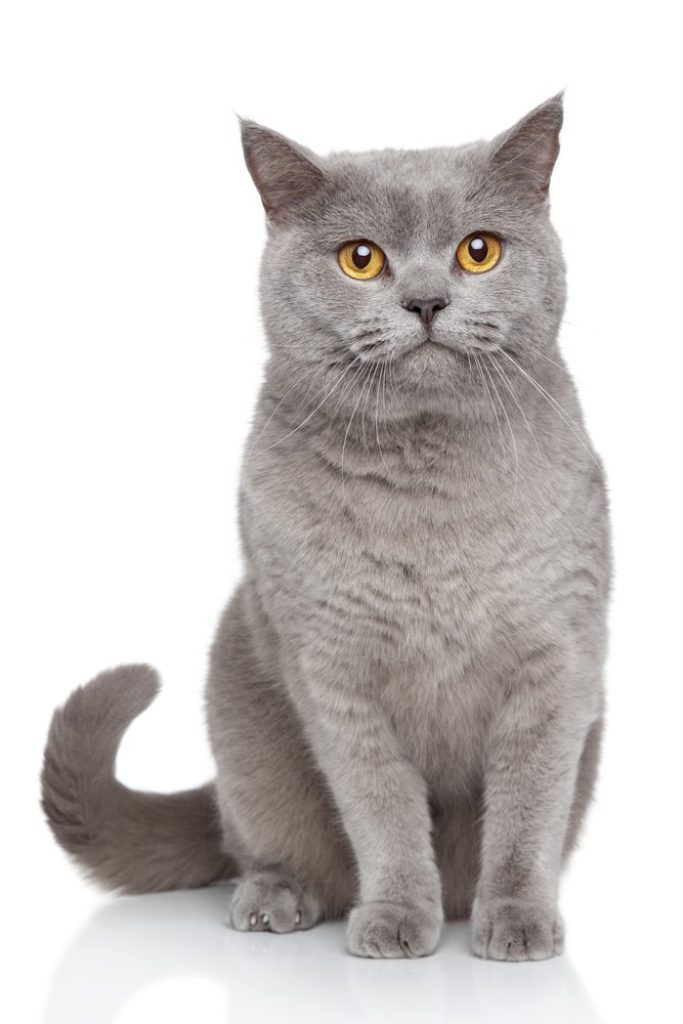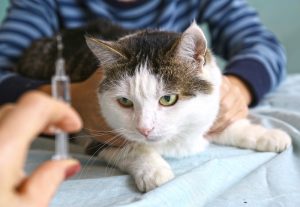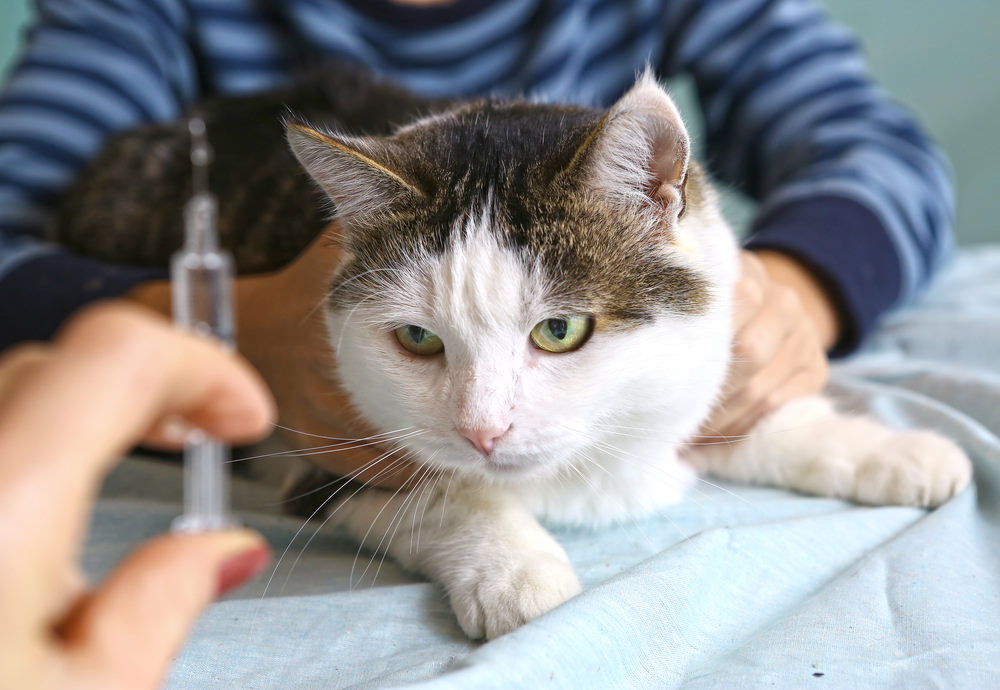Diabetes In Cats
Free Pet Insurance Comparison
Compare Quotes From Top Companies and Save
Secured with SHA-256 Encryption
Dr. Pippa Elliott BVMS, MRCVS
Veterinarian
Dr Pippa Elliott BVMS, MRCVS is a veterinarian with over 30 years of experience in companion animal practice. In 1987 she graduated from the University of Glasgow, with a degree in veterinary medicine and surgery. She works at Blythwood Vets and the People’s Dispensary for Sick Animals (PDSA). Pippa is an advocate of Fear-Free Practice, an animal addict, and a veterinary writer. She is also w...
Veterinarian
UPDATED: Jan 8, 2024
Pet Insurance U receives compensation from the third parties included on this site. This includes payment for clicks from our site to insurance providers’ sites and quote requests generated. Our rankings and reviews are not affected by payments from the insurance companies. The compensation we receive allows the site to be free and regularly updated. Our goal is to review every pet insurance provider, but not all companies are listed on the site.
And many of the companies we review do not pay us anything. We simply rate, compare and review their plan because we feel it will be valuable to you. Our reviews are guaranteed to be unbiased, professional and advertising compensation does not influence rankings.
We are a free online resource for anyone interested in learning more about pet insurance. Our goal is to be an objective, third-party resource for everything pet insurance related. We update our site regularly, and all content is reviewed by pet insurance experts.
UPDATED: Jan 8, 2024
Pet Insurance U receives compensation from the third parties included on this site. This includes payment for clicks from our site to insurance providers’ sites and quote requests generated. Our rankings and reviews are not affected by payments from the insurance companies. The compensation we receive allows the site to be free and regularly updated. Our goal is to review every pet insurance provider, but not all companies are listed on the site.
And many of the companies we review do not pay us anything. We simply rate, compare and review their plan because we feel it will be valuable to you. Our reviews are guaranteed to be unbiased, professional and advertising compensation does not influence rankings.
On This Page
Cats can become diabetic just like humans.
In fact, the treatment to help manage diabetes in cats, also known as diabetes mellitus, is not that different than in humans.
Feline diabetes occurs in 1% to 2% of all cats.
While initially unsettling for any cat parent to hear, feline diabetes can be treated and managed with a little more effort, understanding, and patience.
Need Pet Insurance?
FACT: Pet insurance pays up to 90% of vet bills when your pet is sick or injured!
Diabetes In Cats
A normal cat’s bodily function has the ability to utilize glucose properly which is needed to give the cat fuel and insulin helps your cat do just that.
If glucose is unable to convert to insulin, kidney damage, and even damage to your cat’s heart, nervous system and eyes can occur.
If left untreated, diabetes can cause blindness, nerve damage, and even a stroke.
While diabetes isn’t curable, it can be stabilized with medication and a balanced, healthy diet.
Related: 10 Things You Must Know Before You Buy Pet Insurance
Enter your ZIP code below to view companies that have cheap pet insurance rates.
Secured with SHA-256 Encryption
Types of Cat Diabetes
There are 3 types of diabetes in cats.
Type I
The pancreas can no longer produce the correct amount of insulin and therefore daily insulin will be required.
Type 2
The pancreas is unable to utilize the production of insulin efficiently, but it can still produce small amounts of insulin.
Type 3
The production of insulin is reduced as a result of disease, drugs and/or other conditions.
Some examples include Cushing’s disease, gestational diabetes and other diseases that affect the pancreas.
Most cats are diagnosed with Type 2 diabetes while dogs with diabetes tend to more often suffer from Type 1 diabetes.
A cat can sometimes go into remission in the early stages of diabetes if treatment is started before any damage to the pancreas occurs.
If left untreated, the stress on the cat’s pancreas will lead to the pancreatic cells becoming damaged.
If this happens, the disease tends to revert to Type 1 diabetes and the cat will then become dependent on insulin.
Real Cost Savings from PetFirst Clients

Gidget
PetFirst saved his parents
$2,194
Artemis was a beautiful and friendly cat to all who were willing to pet him. Unfortunately, he developed feline diabetes which required regular vet visits and medications that his Mother could not otherwise afford on her fixed income. Having PetFirst insurance, she called and discussed the problem with a friendly PetFirst agent. To her surprise, she found out that Artemis’ ongoing required vet visits and medication would be covered by his PetFirst insurance. Artemis was able to live out the rest of his life with proper medical care and medicines thanks to PetFirst insurance.
Diabetes in Cats Symptoms
- Increase in urination
- Excessive Thirst
- Loss of Appetite
- Weight Loss
- Fur loss
- Increased Hunger
- Muscle Weakness
Causes of Diabetes in Cats
Feline diabetes is usually caused by the following:
- Amyloidosis – A disease where amyloid, a protein that is starch-like, builds up in the pancreas.
- Pancreatitis – Inflammation of the pancreas
- Drugs – Such as corticosteroids
- Obesity – Being over the normal weight the cat should be can cause health issues.
Enter your ZIP code below to view companies that have cheap pet insurance rates.
Secured with SHA-256 Encryption
Treatment & Cost of Feline Diabetes
Your veterinarian will perform a full diagnosis of your cat monitoring your cat’s glucose levels in the blood and urine to determine the severity of the type of diabetes.
Insulin

Each cat is different and therefore the correct amount of insulin, dosage and frequency will be decided by your veterinarian.
Most diabetic cats will need to be given insulin injections under their skin twice daily.
The injections will be administered to your cat using a small needle.
The injections need to be given each day at around the same time frame.
Your veterinarian will show you how to give your cat the injections which shouldn’t be painful to your cat.
Your cat should have some food in his or her system before administering the insulin.
Your vet will prescribe the insulin and you can get the insulin directly from your vet or some online pharmacies.
The typical cost of insulin is $30 to $90 a month.
Cat Diet for Diabetes
Wet food is always preferable for cats with diabetes due to the extra water in canned food and fewer carbohydrates.
Your veterinarian might also recommend a prescribed cat food that is formulated specifically for diabetes.
There are different brands of prescriptive food and Hills’ Prescription Diet, for diabetes can be effective but expensive!
For example, the formulation for diabetes in cats will cost about $75 for a bag of dry food and a case is approximately $45.
Need Pet Insurance?
FACT: Pet insurance pays up to 90% of vet bills when your pet is sick or injured!
Vet Visits
You will probably have to visit the vet a few times a year to check not only on your cat’s diabetes but to make sure that the insulin dosage is just the right amount.
Pet Insurance for Cat Diabetes
Pet insurance can be really valuable to a cat that is diabetic or with any common cat health issue.
With the increased vet visits, insulin, syringes, and higher prescribed food, pet insurance can save you thousands of dollars each year.
As long as you have enrolled your cat in pet insurance prior to his or her getting diabetes, you will be covered for most of the costs!
A pet insurance plan, like Healthy Paws, will not only cover up to 90% of the treatment but also for the rest of your cat’s life.
But, if your cat develops diabetes before you enrolled, you won’t be able to cover your cat for any of the costs because diabetes will now be pre-existing.
Another reason why it’s important to enroll your cat in a pet insurance policy when he or she is a kitten. Or if you have a breed like a Burmese, that is pre-disposed to diabetes.
Feline Diabetes Management
A cat with feline diabetes can still live a long life as long as your cat is being treated consistently.
Tips for Cats with Diabetes
Make sure to feed the same amount and type of food to your cat and at the same time each day.
Watch your cat’s water consumption to make sure he or she is drinking enough.
Monitor the frequency and consistency of your cat’s urination. Urine output can be monitored by the amount you scoop out of the litter box each day and should be consistent daily. Once or twice a day is normal.
If you notice any changes to your cat’s diet, appetite, or urination, make sure to take your cat to the vet immediately.
Your vet might adjust the insulin and will check to make sure diabetes has not re-occurred.
If your cat does become diabetic, while not the best of news, it can be treated and managed.
Even though there is more effort involved, it can be done and your cat can continue to live a long, happy life!
If you want to take a look at some pet insurance companies to help offset the cost of any disease your cat might develop, our top cat insurance companies is a great place to start!
Even if your cat is diagnosed with cancer, these insurance companies can still protect you from the massive vet bills.
Other articles you may find helpful:
Is Exotic Pet Insurance Necessary?
The Best Pet Insurance By State
Fun Facts, Dog FAQ, And Unsolicited Dog Advice
5 Training Commands to Save Your Dog’s Life
The Ultimate Guide to Safe Foods for Dogs
We have worked hard to provide you with all the free resources possible to help give you insight into the best pet insurance for cats, additional cat breeds info, common cat health issues, and a fun look at frequently asked cat questions.
Learn more about common cat health problems:
Arthritis in Cats, Cancer in Cats, Declawing Cats, Diabetes in Cats, Eye Infection in Cats, Hypoallergenic Cats, Hyperthyroidism in Cats, Overweight Cats, Vomiting Cats

Frequently Asked Questions
What does “Secured with SHA-256 Encryption” mean on the page?
The notation “Secured with SHA-256 Encryption” indicates that the website uses a secure connection protocol (SHA-256) to encrypt data, ensuring a secure and private online interaction.
Who is Melanie Musson, the published insurance expert mentioned on the page?
Melanie Musson is a fourth-generation insurance professional with expertise in state-specific car insurance laws. She provides in-depth knowledge about insurance dynamics and their role in individuals’ lives, covering topics from budgets to coverage levels.
Why is Dr. Pippa Elliott, BVMS, MRCVS, mentioned on the page?
Dr. Pippa Elliott is a veterinarian with over 30 years of experience. Her role is to provide insights and expertise, particularly in companion animal practice, contributing to the accuracy and reliability of the information on the page.
What is the purpose of the Advertiser Disclosure section?
The Advertiser Disclosure section informs users that Pet Insurance U receives compensation from third parties, including insurance providers, which helps keep the site free and updated. The compensation does not influence the site’s rankings or reviews.
Can cats get diabetes like humans?
Yes, cats can develop diabetes, and the treatment to manage feline diabetes, also known as diabetes mellitus, is similar to that in humans.
What are the types of diabetes in cats?
There are three types of diabetes in cats: Type I (insulin production deficiency), Type II (inefficient insulin utilization), and Type III (reduced insulin production due to disease or other conditions).
How is feline diabetes treated?
While feline diabetes is not curable, it can be stabilized with medication and a balanced, healthy diet. Treatment often involves insulin injections, and the cost of insulin is typically between $30 to $90 per month.
What are the symptoms and causes of diabetes in cats?
Symptoms include increased thirst, urination, and weight loss. Causes of feline diabetes include factors like genetics, age, and obesity.
How can cat owners manage feline diabetes?
Cat owners can manage feline diabetes by administering insulin injections, monitoring the cat’s diet, ensuring regular vet visits, and considering pet insurance to cover associated costs.
Why is pet insurance recommended for cats with diabetes?
Pet insurance can be valuable for covering the costs of vet visits, insulin, and specialized food for diabetic cats. Enrolling in pet insurance early is crucial, as pre-existing conditions may not be covered.
Can a cat with diabetes live a long, healthy life?
Yes, with consistent treatment, a cat with diabetes can live a long and happy life. Monitoring diet, water consumption, and regular vet check-ups are essential for their well-being.
Enter your ZIP code below to view companies that have cheap pet insurance rates.
Secured with SHA-256 Encryption
Dr. Pippa Elliott BVMS, MRCVS
Veterinarian
Dr Pippa Elliott BVMS, MRCVS is a veterinarian with over 30 years of experience in companion animal practice. In 1987 she graduated from the University of Glasgow, with a degree in veterinary medicine and surgery. She works at Blythwood Vets and the People’s Dispensary for Sick Animals (PDSA). Pippa is an advocate of Fear-Free Practice, an animal addict, and a veterinary writer. She is also w...
Veterinarian
We are a free online resource for anyone interested in learning more about pet insurance. Our goal is to be an objective, third-party resource for everything pet insurance related. We update our site regularly, and all content is reviewed by pet insurance experts.


